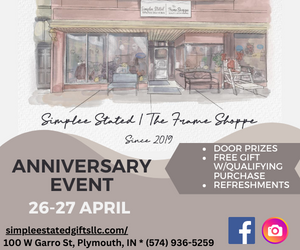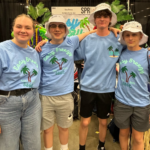 The Indiana General Assembly took the unusual step Tuesday of endorsing unanimously a reentry program for women leaving prison that was conceived and developed by the women themselves. The program, Constructing Our Future, calls for women to be trained in building trades and spend time while incarcerated rehabilitating some of the thousands of abandoned homes in Indianapolis. They have spent more than two years in their public policy classes at the prison researching, studying, drafting proposals, and presenting the program to government officials and experts.
The Indiana General Assembly took the unusual step Tuesday of endorsing unanimously a reentry program for women leaving prison that was conceived and developed by the women themselves. The program, Constructing Our Future, calls for women to be trained in building trades and spend time while incarcerated rehabilitating some of the thousands of abandoned homes in Indianapolis. They have spent more than two years in their public policy classes at the prison researching, studying, drafting proposals, and presenting the program to government officials and experts.
State Representative Karlee Macer (D-Indianapolis), whose district includes the Indiana Women’s Prison (IWP), introduced the Resolution and spoke in favor of it. “I could not be more proud the women working hard to change their lives and to better communities upon release,” Macer said.
Rep. Macer also read statements by two of the women who have helped develop the Constructing Our Future program. A video recording of the women’s statements is available online at https://youtu.be/7MxGSqBqEUs.
House Concurrent Resolution No. 71 recognizes the benefits of the Constructing Our Future program and provides that an interim study committee will further consider the program.
Dr. Kelsey Kauffman, founder of the all-volunteer higher education program at the Indiana Women’s Prison, has worked with the women to develop Constructing Our Future since the program’s inception. Kauffman said,
“The Indiana General Assembly has just done something quite remarkable. They have endorsed a program that was conceived by people incarcerated in state prison that is designed to reduce recidivism rates and enhance urban renewal. I think this may be a first in the nation. I would like to thank Representatives Karlee Macer and Greg Steuerwald and also Senator Mike Young who was the first person to see the merit in the students’ ideas. Two years ago, he invited two of them to testify live from the prison before his committee—another first in the nation. It is our hope that the interim study committee that will be examining this issue later this year will continue this tradition of openness by holding one of its hearings at the prison so that the students can testify live and in person.”
Kauffman is the author of Prison Officers and Their World (Harvard University Press) and many articles and reports on prisons.
Sagamore Institute Senior Fellow Andrew Falk has volunteered as an instructor at the prison for the past year and has assisted with the development of Constructing Our Future. Falk has assumed primary responsibility for the program’s resources and efforts outside of the Department of Correction, including coordinating with local non-profits and governments.
“The latest research indicates that the programs with the highest success rates, both in terms of increasing employment opportunities and in reducing recidivism, are those that take the most holistic approach to treating all of the underlying challenges that formerly incarcerated individuals encounter upon re-entry,” Falk said. “Constructing Our Future provides this holistic approach, and we are excited that the Legislature has endorsed this program.”
Constructing Our Future is a program that combines extensive training in life skills as well as thousands of hours of in building trades and maintenance training. Qualified women who have applied and been accepted into the program will then be allowed, in the last year of their sentences, to work on road crews to restore abandoned houses in Indianapolis. Upon their release, the women will reside at a designated halfway house, begin regular employment, and continue working on the houses for another year. Upon successful completion of the program, the women will earn a house of their own based on their sweat equity.
The program provides a pathway for formerly incarcerated women to be reintegrated back into society with the basic skills to repair, remodel, and revitalize abandoned homes and neighborhoods. The women in the program are eager to be independent, law-abiding citizens who give back to their communities. At the same time, they will reduce recidivism and rebuild communities “one house, one project, and one neighborhood at a time.” Program development team member D’Antonette Burns, who is incarcerated at the Women’s Prison, gave this statement, “…it is our expectation that just as the abandoned property is renovated, so too will the perception of the people doing the renovations. Our intention is that where blighted neighborhoods and people incarcerated were perceived to be of no value, both will attain value, one house at a time.” Ultimately, the vision is to become a model for other cities across the state and country.
In a prepared statement, Kristina Byers-Escobedo, one of the incarcerated women who developed COF, stated, “We’ve researched low-income housing policy in the United States and brainstormed reasons why so many women recidivate. By marrying these two concerns, we’ve sought ways to effect measurable change in both, with minimal cost to taxpayers.”
For more information, please contact Andrew Falk (andrew@sagamoreinstitute.org) or Kelsey Kauffman (kelsey.kauffman@gmail.com or 765.721.6044).














